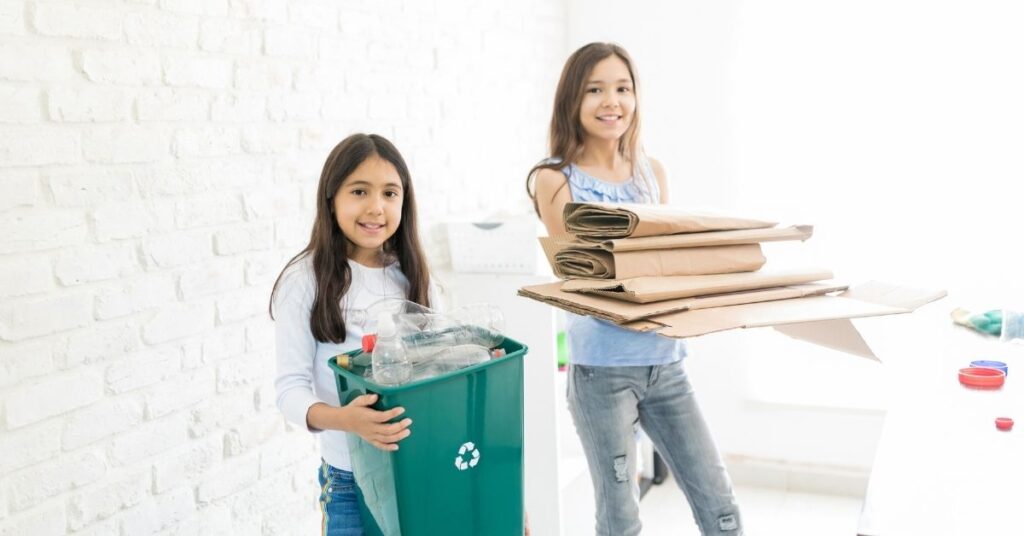Does your child come home with a mess of papers in their backpack? Papers from school never reach you unless you delve into the backpack yourself? Is your teen’s room a mess with miscellany, electronics and clothing strewn everywhere? Your autistic and ADHD child or teen needs help developing organization skills. And you can help them!
Why is organization difficult for those with autism and ADHD?
Many people with autism and/or ADHD have difficulty with organization because of a gap in their executive skills function. Researchers have theorized that this is a result of the genetic make-up of people with have autism and/or ADHD.
The Merriam-Webster Dictionary defines executive function as “the group of complex mental processes and cognitive abilities (such as working memory, impulse inhibition, and reasoning) that control the skills (such as organizing tasks, remembering details, managing time, and solving problems) required for goal-directed behavior.”
Organization skills are part of executive function. (For more information about executive function overall and helping your child increase their executive function skills, read this blog post.)
Importance of learning organization skills

Learning how to organize is a necessary skill for being successful in school, work and “adulting” in the future. If our kids are struggling with how to organize, it’s so important that we as parents, caregivers and teachers collaborate with them to improve these skills.
Our son J struggled with organization as a child and a preteen. When he was in sixth grade, he had a wonderful resource teacher who made it a priority to help J learn how to organize his papers into an expandable file. After a school year collaborating with her, he had it down, and he still uses that system and the expandable file now in high school. He also organizes his backpack and knows exactly where everything is. We are still working on how to organize his room better, but for the most part he knows where things are supposed to go and can do a reset of his room quickly when needed. He still needs to get better at planning and organizing his schoolwork, but he is making progress.
Tips to help you teach organizational skills to your autistic and ADHD child or teen
So how can you help your autistic/ADHD child or teen learn organization skills? Here are 10 ways:
1. Set up a place to house papers from school and other functions until you can sort through them
Designate a place for your child or teen to put the papers they bring home from school, youth group and other activities until you can sort through them. You may want to consider a Sunday Basket (not an affiliate link) that is recommended by Lisa Woodruff at Organize 365. This way, your child or teen will have a specific place to put them, and it gives you time to go through everything each week.
2. Help your child arrange their backpack for school and be sure to schedule a time for a weekly reset until your child has the hang of it

While backpacks aren’t very big, you can lose a lot of stuff in them if they are not organized well. Take out all of your child or teen’s belongings from the backpack and together reorganize it. Make sure your child is the one who is determining what goes where. Our autistic kids think differently, so while the place where a certain item would be located may make sense to us, it may be different for them.
Once you have it organized, determine a day of the week to go through the backpack with your child or teen to make sure no papers or homework have been missed. Then you can reset anything that was put in the wrong place.
3. Teach your teen how to use reminder notes via apps on their phone or Post-It Notes
A big part of organization is planning and keeping track of appointments and to do’s. Because of my son’s ADHD, he has a hard time remembering these things. I’ve been trying to help him understand the importance of reminders via his phone, Post-It Notes and the whiteboard in our kitchen. I have a milder version of ADHD, and I certainly have learned to lean on reminders to help me ensure my to do list is updated and nothing is missed.
4. Establish an environment conducive to organization
Be sure to set up your child’s environment for organizational success. For example, you may need to label bins and shelves in their room to remind them where things go. Walk through their room with them on a weekly basis (like you do with their backpack) and ensure they know where everything goes. If your home is organized overall, then it will help your child or teen increase their organization skills because they will learn where everything goes.
When they have a large project at school, bring out a checklist of what steps they should follow to break the project into smaller chunks. Planning is part of learning how to organize. If you are planning a vacation, have your child or teen help you to learn how to organize a trip.
5. Schedule regular declutter dates

Clutter has a way of building throughout our homes. That happens in your kid’s room as well. Take time periodically to have your child or teen go through their belongings. They can throw away things that are broken or trash and then place items they no longer want in a donation bag or box. If they no longer want something that someone else may want to purchase, you can sell it for them on E-bay, Facebook Marketplace, Next Door or Craigslist. Or you can take it to a children’s secondhand store to sell gently used clothing, toys and other items.
6. Embrace the to do list
Most of us use to do lists for home, work and projects. However, to do lists are an especially good tool for those with ADHD. With so many thoughts swirling in our brains, it’s easy for a task that needs done to come to our minds and then exit quickly when another thought enters. Putting it quickly on a to do list will help your teen not forget it. Don’t have their to do list with them? That is where the reminders above come into play!
7. Use visual schedules
If your child or teen does best by seeing things visually, consider using a visual schedule. This can help with what to expect from their calendar that day. You can also add organization elements to it as well. For example, a time to clean up their room or toy area and even where things go.
8. Find a planner that they love or at least will use
Many of our teens have a lot going on, so learning to use a planner or agenda is a great way to organize their activities, homework and events. This is something I still am working on with our son J. Help them find a calendar – electronic or paper – or even a daily or weekly planner where they can keep track of homework assignments, project deadlines, extracurricular activities and even part-time job schedules.
9. Use rewards to encourage your child or teen to keep up with organizing
People with ADHD many times lack motivation. Experts believe this may be caused by brain chemistry, lack of interest and a tendency to be easily overwhelmed. To help your child or teen stay organized and keep following the organization system that you both have established, reward your child or teen often. Be sure to celebrate the small successes! Every step of the way will help them increase their organizational skills.
Resources to help
Looking for some resources to help you teach organization skills to your autistic child or teen? Here are some suggestions.
“Smart but Scattered Teens: The “Executive Skills” Program for Helping Teens Reach Their Potential” (affiliate link) [I am currently reading this, and it is a great book with practical guidance and advice.]
“Focus and Thrive: Executive Functioning Strategies for Teens: Tools to Get Organized, Plan Ahead, and Achieve Your Goals” (affiliate link)
“Thriving with ADHD Workbook for Teens: Improve Focus, Get Organized, and Succeed” (affiliate link)
Have you had success teaching your autistic and ADHD child or teen organization skills? If so, leave a comment and share what other tips you have to help parents and caregivers.











